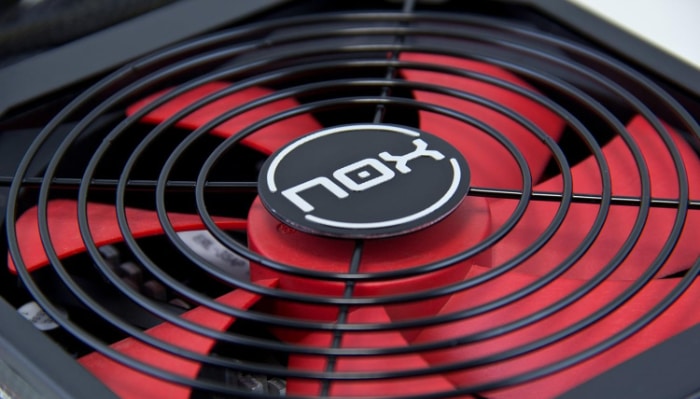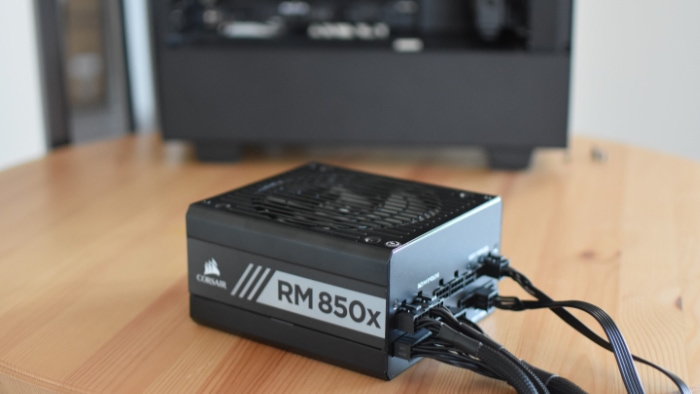What Happens if Your Power Supply Unit (PSU) is Too Weak?

Power Supply Units (PSUs) serve as the lifeblood of your computer system, ensuring that each component receives the necessary electrical supply for optimal operation. While it may be tempting to overlook this vital component when building or upgrading a computer, doing so could result in a range of problems.
From unexpected shutdowns and reboot loops to long-term hardware degradation, the consequences of an underpowered PSU are numerous and far-reaching.
The Role of a PSU in a Computer System
A Power Supply Unit, commonly referred to as a PSU, is more than just a box that plugs into your wall outlet. It plays a critical role in managing and distributing electrical power to the various components within your computer system.
The PSU ensures that essential parts like the CPU, GPU, and memory modules get the appropriate voltages and currents they need for efficient functionality.
Power Conversion and Regulation
One of the primary functions of a PSU is to convert alternating current (AC) from the electrical outlet into direct current (DC) that the computer's internal components can use. A typical PSU converts the AC to three distinct DC voltages—3.3V, 5V, and 12V—each serving different components.
For example, the 12V rail often powers the CPU and GPU, while the 5V and 3.3V rails may power peripherals and other smaller components.
Distributing Electricity to Components
A PSU comes with a variety of connectors to facilitate the distribution of electrical power to different hardware components. You'll find connectors for the motherboard, CPU, GPU, hard drives, and even your cooling system.
If any component is inadequately powered, it may fail to function optimally, leading to subpar system performance or outright failure.
Energy Efficiency
Modern PSUs are often rated for efficiency, commonly according to the 80 PLUS certification system. An efficient PSU will convert more AC power to DC power with minimal waste, which not only lowers your electricity bill but also generates less heat.
This is particularly advantageous as less heat equates to a quieter and longer-lasting system.
Voltage Regulation and Protection Mechanisms
Quality PSUs include features that protect your system from electrical hazards like overvoltage, undervoltage, and short circuits. These safety mechanisms help in stabilizing the power output and safeguarding the connected components from electrical damage.
Low-quality or inadequate PSUs may lack these protective features, putting your entire system at risk.
The Importance of Adequate Wattage
The wattage of a PSU essentially dictates its capacity to supply power. Underestimating the required wattage can lead to various issues, including system instability and decreased component lifespan.
Contrarily, an overpowered PSU will be inefficient and costly. Hence, it's crucial to choose a PSU with a wattage that aligns well with your system's power consumption needs.
Symptoms of a Weak PSU
When a Power Supply Unit (PSU) is underpowered for the system it supports, a variety of unsettling symptoms can manifest. These signs often serve as warning flags, indicating that the PSU may not be delivering adequate electrical supply to your system's components.
Unplanned Shutdowns
One of the most alarming signs of a weak PSU is unplanned system shutdowns. Your computer may suddenly turn off without warning, even when running low-resource tasks.
This happens because the PSU can't supply enough power to keep the system running, especially under load. While occasional shutdowns might seem like mere inconveniences, they can lead to data corruption and reduce the overall lifespan of your computer components.
Reboot Loops
Another symptom to watch out for is the system getting caught in a cycle of rebooting. Your system may begin to boot and then suddenly shut down, only to attempt booting again.
This cycle continues, rendering the computer unusable. Reboot loops often occur because the PSU fails to deliver the stable power supply necessary for the system to complete the booting process.
System Instability
Frequent software crashes, unresponsive programs, or even the dreaded Blue Screen of Death (BSOD) can signify a PSU struggling to meet power demands. A weak PSU can lead to voltage fluctuations that disrupt the system's operations, causing software and operating systems to crash or freeze.
Failure to Boot
In extreme cases, a weak PSU may prevent the computer from booting at all. Pressing the power button may result in no response, or you may hear the system fans spin for a moment before everything goes silent.
This happens when the PSU cannot supply even the minimum power required for the system to initiate the boot process.
Inexplicable Hardware Failures
Unexplained hardware malfunctions or failures can also be traced back to an inadequate PSU. For instance, a GPU that has always worked flawlessly may suddenly display graphical glitches or stop working altogether.
These hardware issues can stem from insufficient power reaching the components, causing them to malfunction or even fail permanently.
How a Weak PSU Affects Performance

While the signs of a weak PSU may be apparent through various symptoms, understanding the impact it has on performance can be less obvious. A weak PSU doesn't just lead to abrupt shutdowns and system instability; it can also have a more subtle but detrimental effect on the overall performance of your computer.
Reduced System Speed
A computer running on a weak PSU can experience diminished processing speeds, leading to slower task completion and laggy performance. Both CPU and memory modules require a stable power supply for optimum functionality.
If the PSU can't provide that, the CPU may underclock itself to consume less power, impacting the speed of applications and tasks.
Inconsistent GPU Performance
Graphics Processing Units (GPUs) are notoriously power-hungry components. When a PSU fails to supply the necessary power, the GPU may throttle its performance to prevent system instability.
This can lead to inconsistent frame rates in video games, reduced rendering speeds in graphical applications, and an overall poorer visual experience.
Increased Disk Latency
Hard drives and SSDs also suffer from inadequate power supply. Inconsistent or low power can increase disk latency, causing longer read and write times.
This can manifest as slower file transfers, lengthier application load times, and even frequent disk errors, which can lead to data loss or corruption.
Network Issues
Believe it or not, a weak PSU can even contribute to network issues. Network adapters need sufficient power to maintain stable connections.
If they receive inconsistent power, you may experience disconnections, high latency, or even complete network failures.
Increased Error Rates and Data Corruption
Perhaps the most severe issue is the potential for data corruption. As the PSU struggles to supply adequate power, system crashes and unexpected reboots become more common.
These events can corrupt open files and even damage the file system structure, making data recovery a complicated and sometimes impossible task.
Long-Term Implications of a Weak PSU
The negative impact of an underpowered Power Supply Unit (PSU) extends beyond immediate system symptoms and performance degradation. The consequences can be far-reaching, causing lasting damage to your computer system and even contributing to hardware failure.
Component Degradation
Continuous use of a weak PSU can lead to the gradual wear and tear of computer components. Fluctuating power levels can cause electrical stress, which weakens the integrity of the circuitry in components like the CPU, GPU, and memory modules.
Over time, this electrical stress can significantly shorten the lifespan of these parts, forcing you to replace them sooner than expected.
Risk of Component Failure
Not only does a weak PSU accelerate component degradation, but it also increases the risk of outright hardware failure. When critical components like the CPU or GPU are consistently starved of the power they require for optimal operation, they can fail prematurely.
Such failures often come without warning and can result in expensive replacement costs.
Data Integrity Concerns
A less obvious but equally troubling long-term implication of a weak PSU is the threat it poses to data integrity. Unstable power can cause unpredictable system behavior, including frequent crashes and sudden shutdowns.
These incidents increase the likelihood of data corruption, making your stored information unreliable and, in severe cases, unrecoverable.
System Reliability
As components degrade and the risk of hardware failure increases, the overall reliability of your system takes a hit. Frequent issues can transform your computer from a reliable workhorse into an unstable machine that requires constant troubleshooting.
This can be particularly troublesome for those who rely on their computers for work or other critical tasks.
Increased Operational Costs
Finally, the inefficiencies brought about by a weak PSU can translate into higher operational costs. Components operating under stress consume more power and generate more heat, leading to increased electricity and cooling expenses.
Additionally, the costs of replacing degraded or failed components can add up, making the computer more expensive to maintain in the long run.
Conclusion
Careful attention to the health and capabilities of your Power Supply Unit is more than just a prudent measure; it's a necessity for ensuring the longevity and efficiency of your computer system. From immediate symptoms like unplanned shutdowns and system instability to long-term repercussions such as component degradation and data corruption, a weak PSU serves as a ticking time bomb that can have far-reaching consequences.
Recognizing the signs and understanding the impacts on performance can save you from increased operational costs and decreased system reliability. Investing in a high-quality and adequately powered PSU is not merely an option, but a vital step in maintaining a reliable, efficient, and long-lasting computer system.


